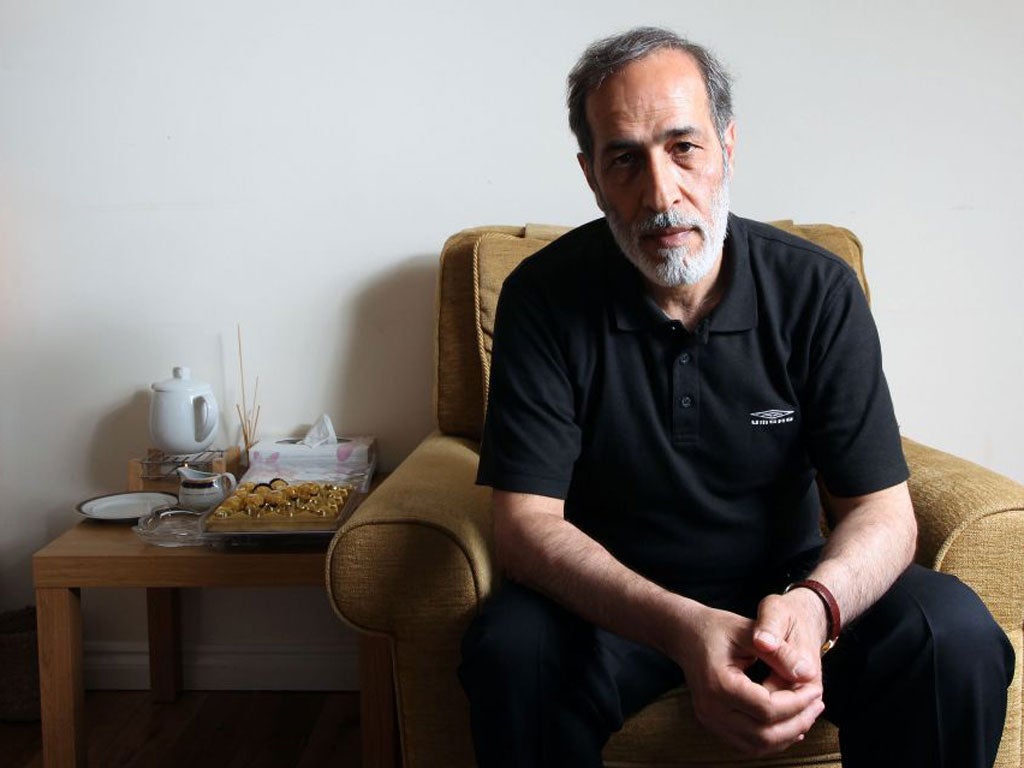Former high ranking Iranian diplomat Nosratollah Tajik avoids extradition to US
59-year-old claimed he was being kept 'hostage' in a politically tainted case

A former high-ranking Iranian diplomat who claimed he was being kept “hostage” in a politically tainted case has won his fight against extradition to the United States.
In a drawn out case that has involved high level political intrigue, Nosratollah Tajik, 59, was the target of an American sting operation in London six years ago, accused of conspiring to export US made night-vision goggles to Iran without a licence.
The former ambassador to Jordan, who was working as an engineering scholar in Durham at the time, insisted he was simply a middle man for a student who needed them for research. In a rare interview, he told The Independent: “I told him I would do nothing illegal. This is politically motivated for the US, they need information about other things.”
Now Mr Tajik will be freed after the High Court judges ruled that he could not be extradited. It remains to be seen whether the Home Secretary and US government choose to appeal to the Supreme Court.
The former diplomat said the High Court judges had made a “brave decision”.
The case has been plagued with controversial delays amid fears that sending Mr Tajik to America for trial could cause further diplomatic tensions between the UK and Iran and create a "real threat" to staff at the British embassy in Tehran.
Lord Justice Moses, sitting with Mr Justice Sweeney, ruled that Tajik "has escaped extradition" because of a failure to "show reasonable cause" for the delays.
Alun Jones QC, representing Mr Tajik, told the High Court last month that it would be “oppressive” to order his removal now. The former ambassador, who has been the subject of an electronic tag and a night-time curfew at the west London flat he shares with his wife and two sons, has heart and other health problems. He would be unlikely to survive the rigours of the US judicial system and a possible 10-year jail sentence, the barrister said.
Extradition was first approved by then Home Secretary John Reid, in 2007 but the Iranians consistently lobbied for his release. A delay of more than three years followed before the final decision to extradite was taken.
Hugo Keith QC, appearing for Home Secretary Theresa May, said the delays had occurred because ministers wanted to see if the US government wished to withdraw its request as there was a "real and immediate threat to UK embassy personnel in Tehran" if extradition went ahead.
A cable sent from the US embassy in London in June 2008 cited comments by a senior Foreign Office official, claiming: “Iran made non-specific threats of reprisals against the UK should Tajik be extradited.”
After years of failing to respond to British government requests, the Americans eventually indicated in 2011 that they were not withdrawing their request, and Mrs May ordered the extradition, deciding Mr Tajik's medical condition was not a bar.
Lord Justice Moses said: “Under the statute, delay in implementing an extradition must be justified to the court, once the appeal process is over. In the absence of any justification offered by the requesting state, the USA, the court could not find that there was reasonable cause for the delay.”
Subscribe to Independent Premium to bookmark this article
Want to bookmark your favourite articles and stories to read or reference later? Start your Independent Premium subscription today.
